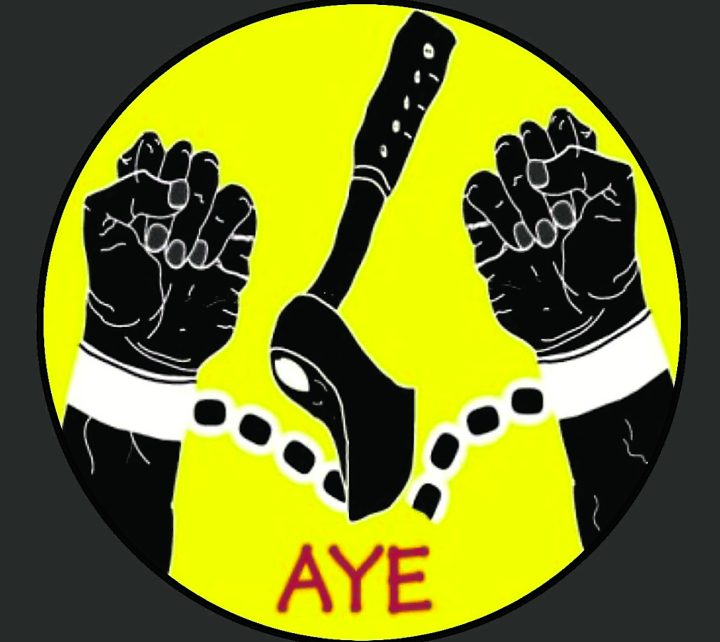INVESTIGATION
Global online ‘student cult’ cybercrime syndicate busted in Cape Town

Black Axe fraud syndicate, known for brutal tactics, allegedly operated from South Africa.
Black Axe, a crime syndicate operating in several countries around the world, has been exposed in South Africa via an international investigation that initially focused on Ireland.
Some authorities view the syndicate, also known as the Neo Black Movement of Africa, as a cult. Its SA wing allegedly has security known as “butchers” to maintain discipline.
According to both South African and US authorities, it has a base in Cape Town.
One of Black Axe’s suspected leaders in Cape Town was brazen enough to allegedly use, as an alias, the name of democratic South Africa’s first president, along with a fancy title – Lord Nelson Rolihlahla Mandela.
And DM168 can reveal that the international head of the syndicate, according to court papers in the US, “advised members against ostentatious displays of fraudulently obtained wealth to avoid attracting attention”.
An Interpol report on cybercrime in Africa, which DM168 reported on last month, said that from January 2020 to February 2021 “South Africa … had the highest targeted ransomware and BEC [business email compromise] attempts”.
Business email scams can involve a target unwittingly transferring funds to scammer-controlled accounts.
Black Axe is suspected of being behind an array of such online scams and money laundering.
In 2020 Udom Emmanuel, governor of the Nigerian state of Akwa Ibom, ordered that “cults, societies and groups”, including Black Axe, “are hereby declared unlawful”.
The European Asylum Support Office, set up by the European Union, also described Black Axe as a “student cult”.
It stated: “Student cults are characterised by violent initiation rites and conduct illegal activities such as: killings, human trafficking, drug trafficking, smuggling, extortions, kidnapping, forced recruitment, etc.”
Various reports say Black Axe was founded at the University of Benin, in Nigeria, in the late 1970s and drew inspiration from the US’s Black Panther Party.
Black Axe evolved and is now known as a criminal grouping that, besides South Africa, operates in several countries, including the US, Canada and Italy (where 30 suspected members were arrested in April this year).
It appears that its South African offshoot was foiled recently after investigators started sniffing out cybercriminals in Ireland.
In November 2021, Interpol announced in a statement that in mid-October it had sent a team to Dublin, Ireland, as part of investigations into financial crime networks.
Members provided support to Ireland’s Garda National Economic Crime Bureau as part of Operation Skein, an 18-month investigation into transnational financial crime, including business email compromise. Operation Skein resulted in more than a dozen arrests and the confiscation of luxury goods including alcohol and designer clothing.
Last month, the Garda National Economic Crime Bureau said it was suspected that Operation Skein crimes under investigation amounted to more than €18-million – nearly R327-million – stolen worldwide.
Interpol’s statement said that its members helped Garda police download data and records from phones and computers seized during Operation Skein crackdowns.
This is where South Africa fits in.
“Some of the data collected during the operation has triggered cooperative investigations between the US and South Africa, with the support of Interpol’s financial crime taskforce,” Interpol’s statement said.
“Evidence extracted is currently being analysed by Interpol with a global lens to help identify and target the principal global protagonists and provide further insight [into] how they carry out these cyber-enabled financial crimes.”
The massive operation led to other takedowns and South Africa was key.
Interpol said investigations led to cases involving Black Axe, which was “thought to be responsible for similar cyber-enabled attacks on a global level”.
In October this year in South Africa, the Hawks announced the arrests of eight suspected online scammers in Cape Town during a joint operation with the US’s Federal Bureau of Investigation.
“The operation was initiated based on the Mutual Legal Assistance from Central Authorities of the United States of America that was approved by the Republic of South Africa,” Colonel Katlego Mogale said at the time.
She said the suspects “intimidated and berated their victims, ruined their lives and then disappeared”.
“We are confident that this investigation will have a significant impact on this region and beyond.”
Mogale told DM168 no further arrests were carried out. It was not clear if more individuals were set to be detained.
The US was after the eight arrested suspects, seven of whom are allegedly leaders of Black Axe in Cape Town, while the eighth is accused of operating with the group.
These suspects, and the allegations they face according to the US, are:
- Perry Osagiede, aka Lord Sutan Abubakar de 1st / Rob Nicolella / Alan Salomon – alleged to be the “Zonal Head” and later “Elder” who ran the Cape Town offshoot of Black Axe. (DM168 has established that in 2020 a man named Perry Osagiede, based in Milnerton, Cape Town, was notified that he would have to forfeit R45,000 to the state. It was not clear why.)
- Enorense Izevbigie, aka Richy Izevbigie / Lord Samuel S Nujoma – allegedly “Chairman of the Council of Elders” who helped steer the Cape Town grouping.
- Franklyn Edosa Osagiede, aka Lord Nelson Rolihlahla Mandela / Edosa Franklyn Osagiede / Dave Hewitt / Bruce Dupont – the suspected “Chief Ihaza” or treasurer and later a suspected Elder.
- Collins Owhofasa Otughwor, aka Lord Jesse Makoko / Philip Coughlan – the suspected “Chief Eye” or secretary.
- Osariemen Eric Clement, aka Lord Adekunle Ajasi / Aiden Wilson – allegedly the “Assistant Eye” who assisted the secretary.
- Egbe Tony Iyamu, aka Lord Aminu Kano / Richard Amall – the suspected “Chief Butcher” or head of security.
- Musa Mudashiru, aka Lord Oba Akenzua – allegedly an “Assistant Butcher” who helped with security.
- Toritseju Gabriel Otubu, aka Andy Richards / Ann Petersen – suspected of controlling a business used to receive proceeds from scams.
A US indictment against the seven suspected Black Axe leaders (the group minus Otubu), signed by Acting US Attorney for the District of New Jersey, Rachael Honig, provides detailed insight into how the syndicate allegedly operated in Cape Town.
It said Black Axe started out, and was headquartered in, Benin City, Nigeria.
In various countries it had regional groupings known as “zones” and its members were known as “Axes” or “Ayes”, who, on joining up, were given an alias or “strong name”.
“In or around 2013, the Cape Town Zone of Black Axe was formed. In or around 2018, the Zone was registered as an organisation with South Africa’s Companies and Intellectual Property Commission,” the US indictment said. Based on the US’s case, Black Axe members seemed to have flaunted their wealth accumulated via crime.
Court papers said that Black Axe’s national chairperson once addressed members, in part saying: “My worry for the movement is that we have lost the secrecy code. A greater percentage of Axemen gets involved in racketeering just like any other persons but, the issue with Ayes is that we are too lousy.
“In the cause of our daily life, we show off unnecessarily our bad money. Can’t we just hide ourselves in our lifestyle? Can’t we separate this our beloved movement from our illicit engagements? Why are we desecrating the essence of our common existence?”
The US Attorney’s Office for the District of New Jersey said that, from 2011 to 2021, Black Axe members “and other conspirators worked together from Cape Town to engage in widespread internet fraud involving romance scams and advance fee schemes”.
Romance scams involved suspects using aliases on social websites and getting victims to believe they were in a romantic relationship with them, as well as getting victims to transfer to, or receive money from them.
Advance-fee schemes made false claims about their ability to provide or arrange loans, inheritances or other financing.
“Many of these fraudulent narratives involved claims that an individual was travelling to South Africa for work and needed money or other items of value following a series of unfortunate and unforeseen events, often involving a construction site and/or problems with a crane,” the indictment said.
“The Co-conspirators used certain victims and other individuals with US-based financial accounts to receive illegally obtained money in the US-based financial accounts and to transfer the funds to accounts overseas for [their] benefit.
“When some victims stopped or expressed hesitation in sending money … the Co-conspirators engaged in manipulative tactics to coerce the victims… For example, alias ‘Aiden Wilson’ … threatened to distribute personally sensitive photographs of a victim on the internet and to other people known by the victim.”
The suspects had also allegedly used “mules” in and out of the US to conceal criminally obtained money. It is yet to be seen whether the suspects, in custody in South Africa, will be extradited to the US. There have been other Black Axe-related cases there and arrests in several countries.
In October 2019, for example, Ikechukwu Derek Amadi was sentenced to nearly 16 years in jail after being extradited from Canada to the US, where he faced charges of conspiracy to commit wire fraud.
Amadi was accused of working with Black Axe.
Meanwhile, in August 2019 in the UK, it was reported that three siblings from Nigeria were sent to jail in London for conspiring to launder nearly a million pounds.
They had allegedly been planning to do so for Black Axe. DM168
This story first appeared in our weekly Daily Maverick 168 newspaper which is available for R25 at Pick n Pay, Exclusive Books and airport bookstores. For your nearest stockist, please click here.




















 Become an Insider
Become an Insider
Couple of female victims in Helderberg, who fell for there tricks
This sounds like a typical Nigerian operation.